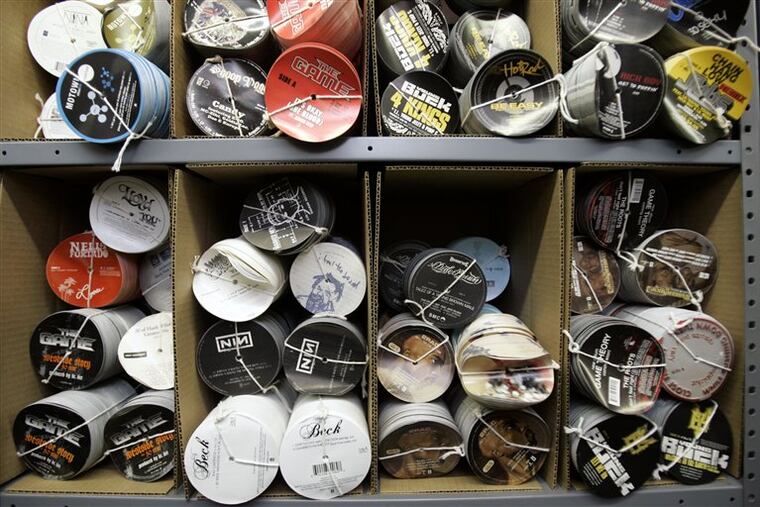Money flows to Brady through a side door
In early summer 2003, at least 27 city judicial candidates, among others up for election that November, wrote checks to a political action committee called the Appreciation Fund.

In early summer 2003, at least 27 city judicial candidates, among others up for election that November, wrote checks to a political action committee called the Appreciation Fund.
They gave $200, $500, $1,000 at most. Nearly half the money raised paid for a July banquet honoring U.S. Rep. Bob Brady, then celebrating his 18th year as chairman of Philadelphia's Democratic Party, as well as the retiring 60th Ward leader, Isadore Shrager.
The rest of the money sat unspent - until two months ago.
That's when the Appreciation Fund was almost depleted, with more than half the $27,022 remaining redirected to Brady's mayoral account, and nearly a third of it to the campaign committee of City Councilwoman Carol Campbell, secretary of the Democratic Party.
In an election season in which money - and access to it - has become a dominant theme in the mayor's race, the Appreciation Fund highlights the difficulties of tracking campaign contributions despite Philadelphia's strict regulation of political money.
The fund also raises questions about the benefits that Brady, a five-term congressman, is reaping from his role as chairman of the Democratic Party, given the many PACs affiliated with him, the party and its officials.
Saying the city's campaign-finance law was to reduce the influence of money in politics, Zachary Stalberg, president of the election watchdog group Committee of Seventy, said: "This use of the so-called Appreciation Fund strikes me as a way to get around the law in terms of limiting the dollars raised."
"Is it an advantage that Brady has because he is the party chairman? Absolutely," he said. "Is it one of the reasons he wanted to remain party chairman? I believe so - to push every button available."
In December, Brady accepted $20,000, the maximum a single PAC can give a mayoral candidate, from one of the party's political committees, the Democratic Campaign Committee of Philadelphia.
Despite being questioned several times by reporters, neither Brady nor the party treasurer, State Rep. Frank Oliver, has explained why the committee decided to write the check to Brady, who has since been endorsed by the party.
Brady, in a recent interview, maintained a similar stance about the Appreciation Fund, in which three-year-old donations by judicial candidates are now being used to support his mayoral campaign.
"I don't know who it is. It's not mine," he said in an interview, referring to that PAC, which wrote him a $15,000 check Dec. 27. Campbell received a $10,000 check from the Appreciation Fund two days later.
Last night, Brady sounded agitated at the notion that he might be "doing something shady. . . . There's nothing illegal here. There's nothing being washed here. It's a legitimate contribution from a legitimate fund."
"I'm the chairman of the Democratic Party. Are you telling me I can't take money from anybody?"
According to documents filed with the state's Bureau of Elections, the Appreciation Fund is chaired by Campbell, the councilwoman and a longtime Brady ally elected last year after a nominating meeting by Brady.
Its treasurer is Ernesto DeNofa, a contractor who is the assistant treasurer of Brady's congressional campaign committee. Also, in October, DeNofa was appointed to head a second PAC run by the party, called the Finance Committee of the Philadelphia Democratic County Executive Committee, which raised almost $400,000 last year.
Campbell did not respond to two requests for an interview. DeNofa, reached yesterday morning, said he would return a call after he left a doctor's appointment, but did not follow up.
Under city rules, candidates for city elected office must maintain a single PAC for their campaign. "One of the things we're looking for are patterns in money transfers and contributions that may suggest attempts to circumvent the contribution limits and the single-committee rule," said J. Shane Creamer Jr., interim executive director of the city Board of Ethics.
Created in 2003, the Appreciation Fund reported raising more than $44,000 that year from 130 donors - but not a dime since.
Though state records give the PAC's official address as 1137 E. Venango St., campaign finance reports filed by many of the judicial candidates and others who contributed to the fund gave its location as 1421 Walnut St. - the same as the party's headquarters.
Brady, on his campaign finance report filed last month, failed to provide an address for the Appreciation Fund. On her report, Campbell listed the PAC's address as "c/o 1421 Walnut St."
Of the money the PAC spent in 2003, almost $12,000 went to Penn's Landing Caterers, which typically hosts events for the Democratic Party. An additional $5,300 went to Strassheim Printers, which published invitations and ad brochures for the Brady/Shrager reception.
Since then, the PAC has made just two donations, to Brady and Campbell. It has $1,974 left.
David Donnelly, national campaigns director for the nonpartisan Public Campaign Action Fund of Washington, said that what can be gleaned about the Appreciation Fund and to the party's PACs "raise additional red flags about whether they are the same entity operating in different names."
"Where there is a drive to raise as much money as possible," Donnelly said, in general "there will be efforts to circumvent or stretch the intent and limits of campaign-finance laws."